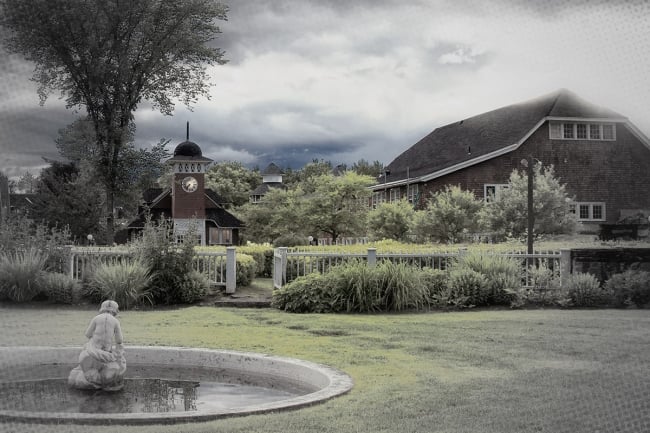You have /5 articles left.
Sign up for a free account or log in.

Goddard College announced plans to close at the end of the spring semester.
Goddard College
Goddard College in Vermont is closing at the end of May, officials announced Tuesday, citing declining enrollment and steep financial challenges. The abrupt closure comes after Goddard went completely online in January, a move officials said was temporary.
In the closure announcement, college leaders pointed to “trends of inflationary pressures, demographic shifts and changing educational preferences.” Significant enrollment losses are a key factor in the progressive college’s economic struggles; the number of students at Goddard fell from more than 1,900 in the 1970s to 220 today, according to the announcement.
Years of Struggles
Board of Trustees Chair Mark Jones described Goddard's demise as devastating.
“The closure of Goddard College is a significant loss for students in search of an alternative, progressive higher education,” he said in the announcement. “The decision to close Goddard College was not made easily or quickly. With declining enrollment and financial insolvency looming, the Board was left with no other option. Our hearts are broken.”
Goddard President Dan Hocoy said they had no other choice.
“We recognize the profound impact this will have on our students, our faculty and staff and progressive education,” he said in the statement. “If there was a viable alternative, the Board would have taken it. But sadly for all of us, there was not. While we are closing the College with heavy hearts, this is not the end of Goddard’s impact on the world. As generations of our alumnx have done before, I know today’s students will carry Goddard’s remarkable legacy into the world in countless ways.”
The college has struggled to generate revenue in recent years, according to public financial documents, which show it lost money in seven of the last 10 available fiscal years.
But Goddard has dealt with financial woes for much longer. In 2016, it borrowed $2.1 million from the U.S. Department of Agriculture—a loan that has not been paid off, Lisa Larivee, executive assistant to the president, told Inside Higher Ed by email. However, Larivee noted the board of trustees plans to sell the campus and settle all debts.
Goddard has also lost half of its student body over the last decade; in fall 2014, 538 students were enrolled, according to the Department of Education’s Integrated Postsecondary Education Data System.
Sector and State Struggles
Goddard is now the fourth college to announce a closure in less than a month, following Oak Point University in Illinois, Birmingham Southern College in Alabama and Fontbonne University in Missouri, all of which cited enrollment and financial issues.
Notre Dame College in Ohio announced its looming closure in late February. And in January, the Pennsylvania Academy of the Fine Arts said it would end its degree offerings.
Other institutions have publicly acknowledged they are teetering on the brink of closure, including Northland College in Wisconsin—which has attempted to fundraise its way out of financial distress with limited success—and Eastern Gateway Community College, which has paused registration and is expected to close unless it receives an influx of funding by the end of May. Saint Augustine’s University, a historically Black university in North Carolina, is also facing existential challenges as it contends with financial issues and the loss of accreditation. And Union Institute & University in Ohio is stuck in limbo, under state and federal scrutiny for its failure to pay employees and alleged misuse of federal student aid dollars. Union Institute has not offered classes in recent months but has made no announcement about a potential closure.
Additionally, Vermont College of Fine Arts has been seeking a buyer due to financial problems and announced an affiliation with the California Institute of the Arts earlier this month.
Vermont, which has a population of about 647,000—roughly the same size as Boston—has been hit hard by enrollment declines, and the loss of Goddard College will further shrink the state’s higher education sector. In the past few years, Green Mountain College, the College of St. Joseph and Southern Vermont College have all closed.
Marlboro College was absorbed by Emerson College in Massachusetts in 2019.
On top of the closures, consolidation has further reduced the number of free-standing institutions in the state. Last year Northern Vermont University, Castleton University and Vermont Technical College formally consolidated into one entity known as Vermont State University.
The string of closure announcements in early 2024 reflects continued struggles across the sector. Last year, 14 nonprofit four-year colleges announced closures and a 15th—The King’s College—ceased operations but has yet to announce a formal closure despite its inactivity.




